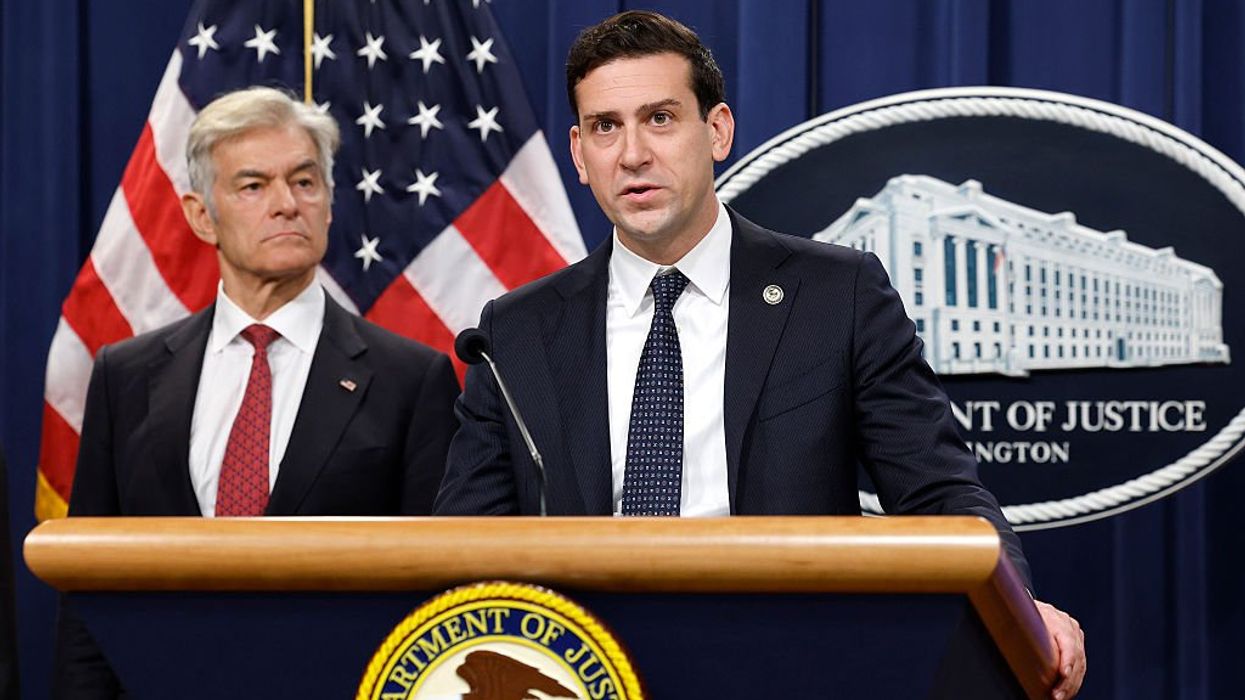
© 2025 Blaze Media LLC. All rights reserved.
Morning Market Roundup: Greeks Withdraw $1B Before Vote, U.S. Retail Down, Italy Catches the Contagion Bug
June 13, 2012
"Contagion is back with a vengeance."
Here’s what’s important in the business world this morning:
Greece: With a make-or-break election scheduled for this Sunday, Greeks have withdrawn over $1 billion from banks and are stocking up on food.
“Bankers said up to 800 million euros ($1 billion) were leaving major banks daily and retailers said some of the money was being used to buy pasta and canned goods, as fears of returning to the drachma were fanned by rumors that a radical leftist leader may win the election,” CNBC reports.
The pro-bailout party New Democracy party is currently tied in a race with the left-leaning group Syriza party, which aims to cancel Greece’s bailout package.
The coming election could very well decide whether Greece remains in the euro, is forced out, or withdraws.
U.S. Retail: U.S. retail sales declined in April and May, pulled down by declines in gas prices. But even after excluding volatile gas sales, consumers barely increased their spending.
The Commerce Department said Wednesday that retail sales dipped 0.2 percent in May. That followed a revised 0.2 percent decline April. The back-to-back declines were the first in two years.
The weakness reflected a 2.2 percent decrease in gasoline station sales. Still, excluding gas station sales, retail spending rose just 0.1 percent in May. And it dropped 0.1 percent in April. That left retail spending roughly flat outside of gas sales for the two months, a sign that slower job growth and paltry wage increases may be leading consumers to pull back on spending.
Total retail sales fell in April to $404.6 billion. That's slightly below March's record level of $406.2 billion and 21.6 percent higher than the recession low hit in March 2009.
Italy: Italian Premier Mario Monti saw nearly seven months of confidence-building by his government wiped out by Wednesday, when a debt auction showed the country's borrowing rates were back near levels last seen in December.
A sale of 12-month bonds, a warm-up for Thursday's weightier long-term debt auction, demonstrated the speed with which market jitters spread from Spain following Madrid's weekend concession that its banks need a bailout.
Italy paid an interest rate of 3.972 percent - up from 2.34 percent in a similar auction last month - to borrow (EURO)6.5 billion ($8.12 billion) in 12-month money from bond markets. Though demand was strong, the high rate suggests investors worry Italy may need a rescue of its own if Spain takes one.
"Contagion is back with a vengeance, and Italy is bearing the brunt of the fallout from Spain's request for external assistance," sovereign debt expert Nicholas Spiro said. Markets, he noted, are no longer differentiating fiscally-stronger Italy from Spain, "which is a sign that panic has set in."
France: France's finance minister has unveiled a plan to cap the pay of top executives at state-owned companies at (EURO) 450,000 ($562,140).
The pay cap was part of President Francois Hollande's campaign pledge to reign in corporate excesses, which he blames in part for the financial crisis.
The move affects only a fraction of French executives, but includes such well-known state-run companies as the SNCF railways, La Poste postal service, and EDF electric company.
Finance Minister Pierre Moscovici said at a press conference Wednesday the cap will be instituted across all state-owned companies by the end of the year.
JPMorgan: Jamie Dimon, chief executive of the largest U.S. bank, will be asked Wednesday to explain how JPMorgan Chase lost more than $2 billion on risky trades and whether its executives failed to properly manage those risks.
Exactly what kinds of trades were made by the investment operations in London where the losses originated? Did JPMorgan have adequate controls in place to prevent such losses? How much did Dimon know?
Dimon will be pressed to provide a clearer picture of all those issues when he testifies to the Senate Banking Committee. He plans to tell the panel that JPMorgan has taken steps to prevent such losses from occurring again, according to his prepared testimony issued by the bank.
The Associated Press contributed to this story.
Want to leave a tip?
We answer to you. Help keep our content free of advertisers and big tech censorship by leaving a tip today.
Want to join the conversation?
Already a subscriber?
more stories
Sign up for the Blaze newsletter
By signing up, you agree to our Privacy Policy and Terms of Use, and agree to receive content that may sometimes include advertisements. You may opt out at any time.
Related Content
© 2025 Blaze Media LLC. All rights reserved.
Get the stories that matter most delivered directly to your inbox.
By signing up, you agree to our Privacy Policy and Terms of Use, and agree to receive content that may sometimes include advertisements. You may opt out at any time.





